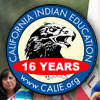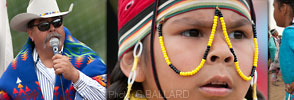 |
 |
 |
Publishing Corner: Indian Community: Science & Wonder Indian Heros: California Indian Art: CALIE Library: Academic Financial Aid: Tribal Governments: Indian Gaming: |
Native American Indians suffering and dieing from type two diabetes statistically rank higest in the world.
NATIVE AMERICAN INDIANS & DIABETES
You might find this PBS program vital to better understand the 'Indian disease'. It is too painfully documented that our Tribal group is the world's most susceptible to type II diabetes. I will sure be watching. "Bad Sugar" travels to the O'odham Indian reservations of southern Arizona where residents are marked not just by poverty but with the dubious distinction of perhaps the highest rates of Type 2 diabetes in the world. While public attention has been focused on risky behaviors and genes, evidence increasingly points to a link between chronic disease and "futurelessness." The program also looks at a new approach to health - one rooted in communities regaining control over their destiny. In many poor inner cities like Richmond, California, recent Southeast Asian immigrants and Latinos are moving into what have been neglected black urban neighborhoods — now their health is being eroded, too. What policies and investment decisions create neighborhood environments that harm or benefit the health of residents? And what actions can make a difference? A cardiologist said if everyone who gets this e-mail sends it to 10 people; you can bet that at least one life will be saved. Back to Roy Cook's Articles page.
|
CALIF INDIAN EDU NETWORK: AHMIUM.org | SCAIR.org | SDICENTER.org | APAPAS.com
—
WEB SITE DESIGN
www.calie.org COPYRIGHT 2008-Present • ALL RIGHTS RESERVED
